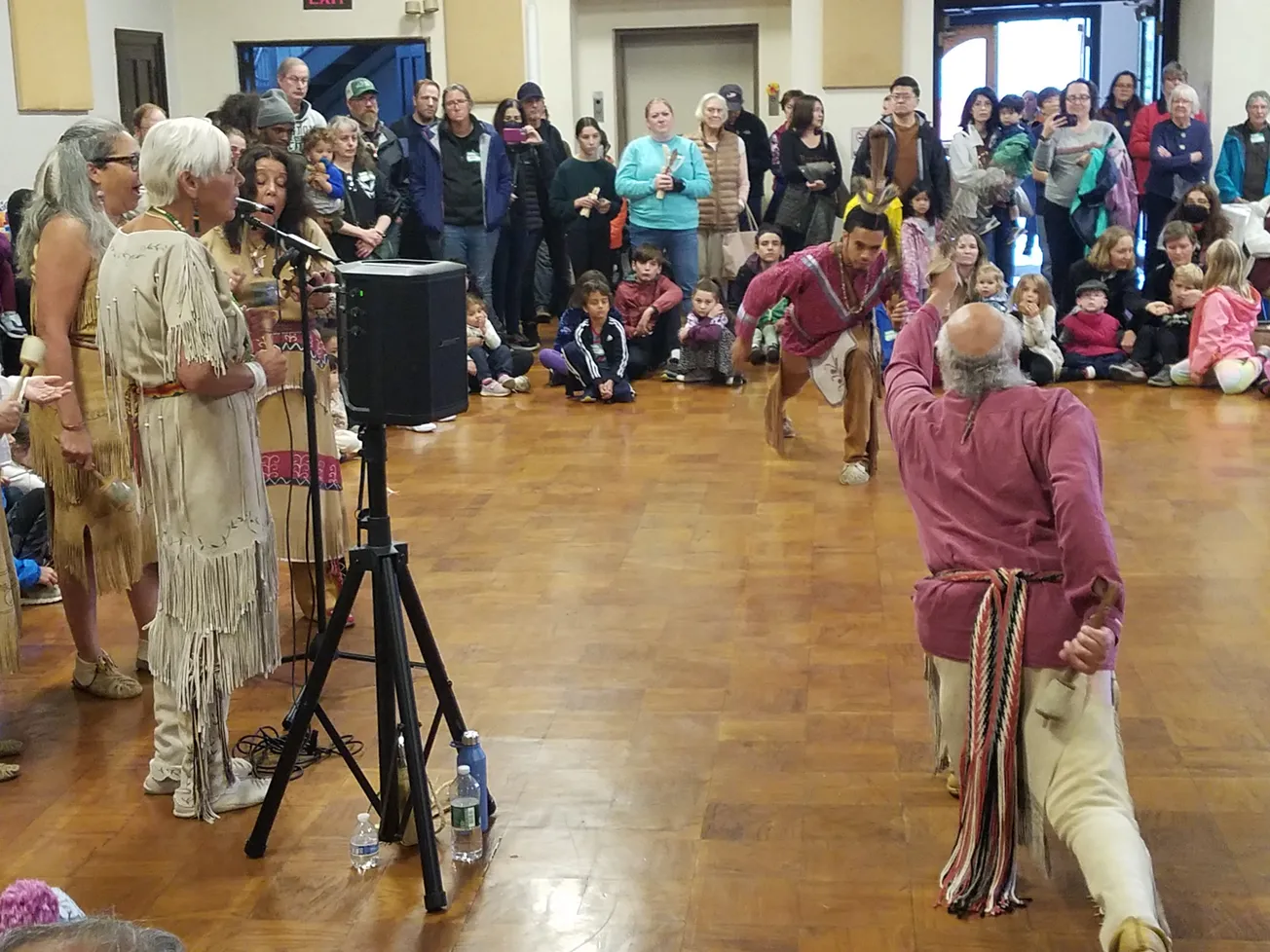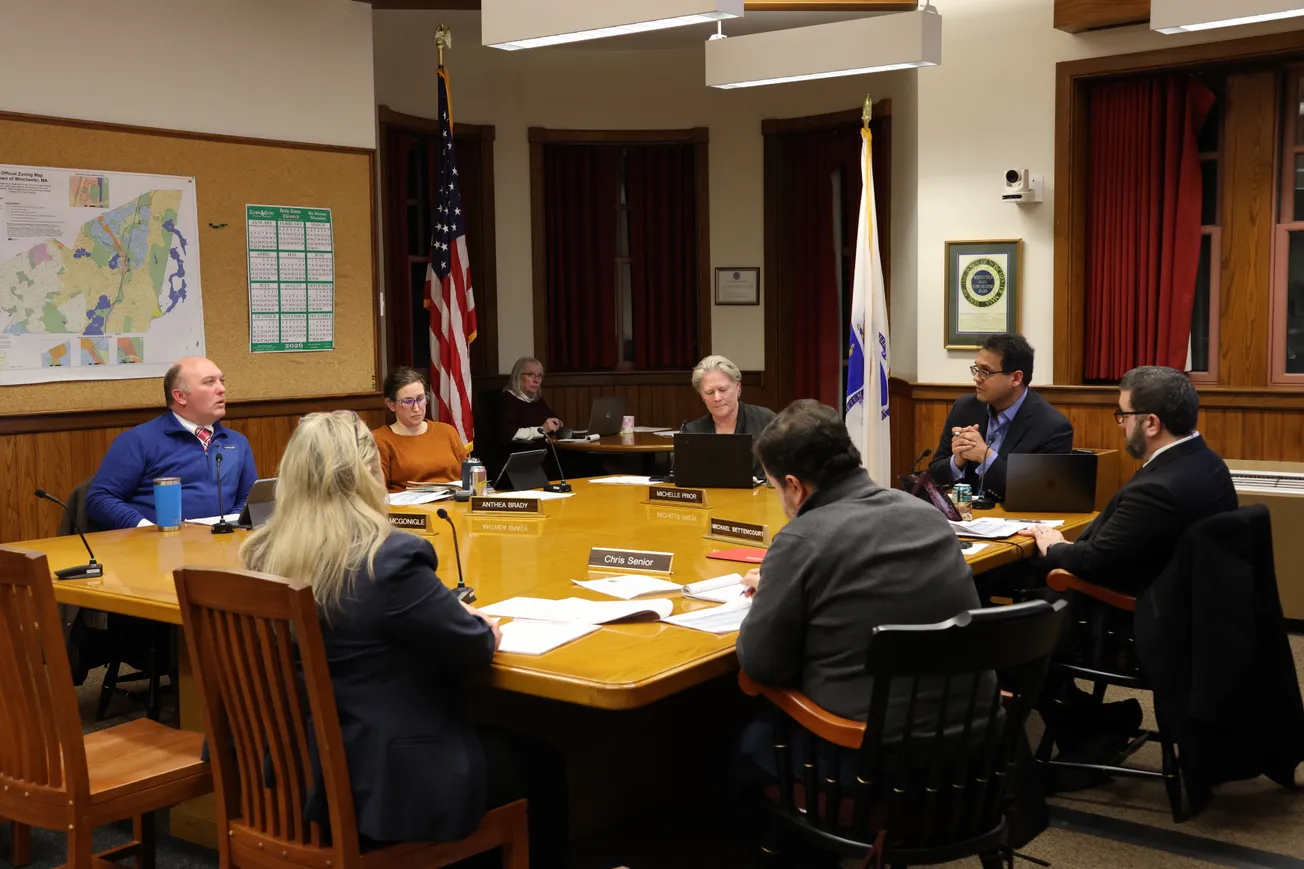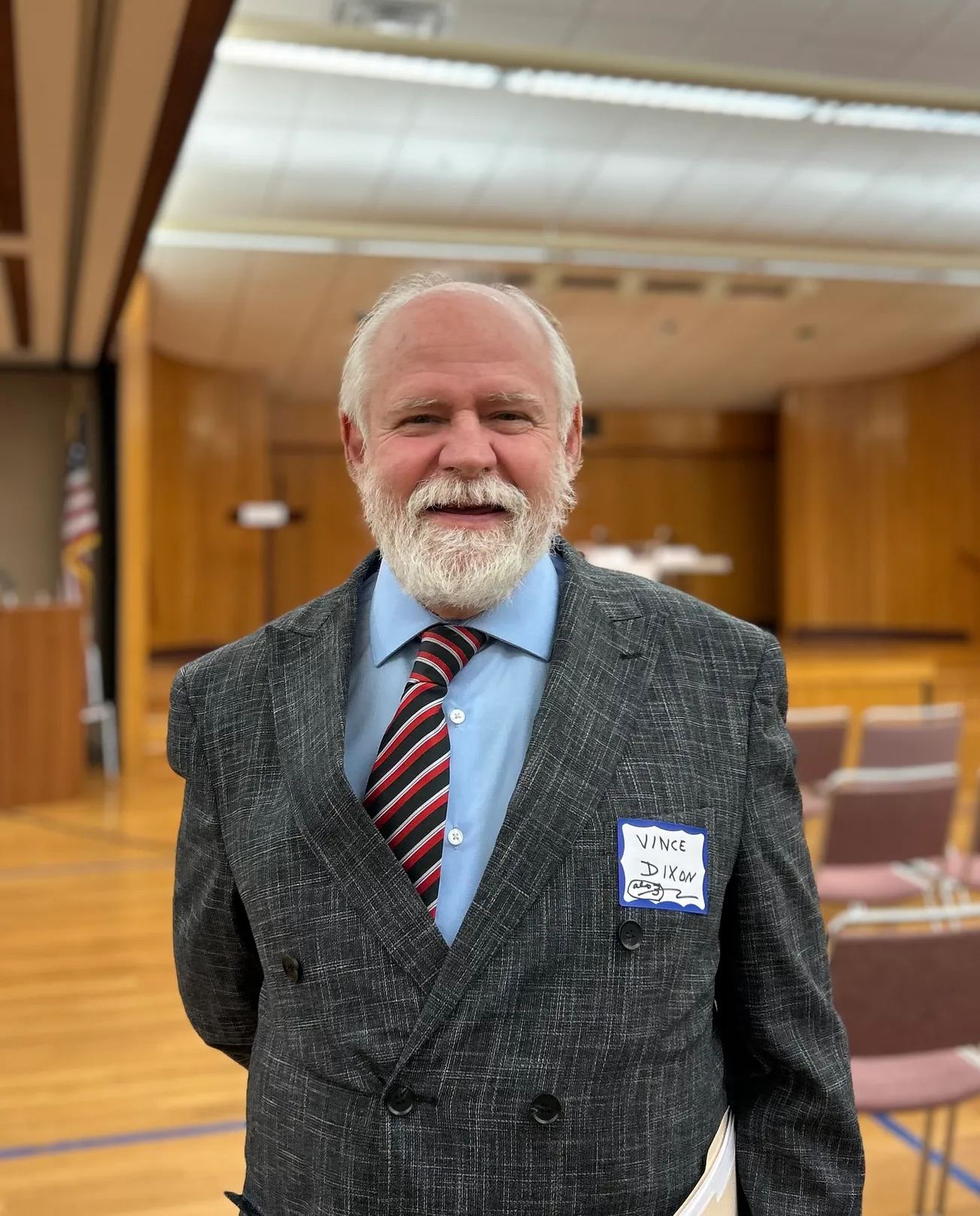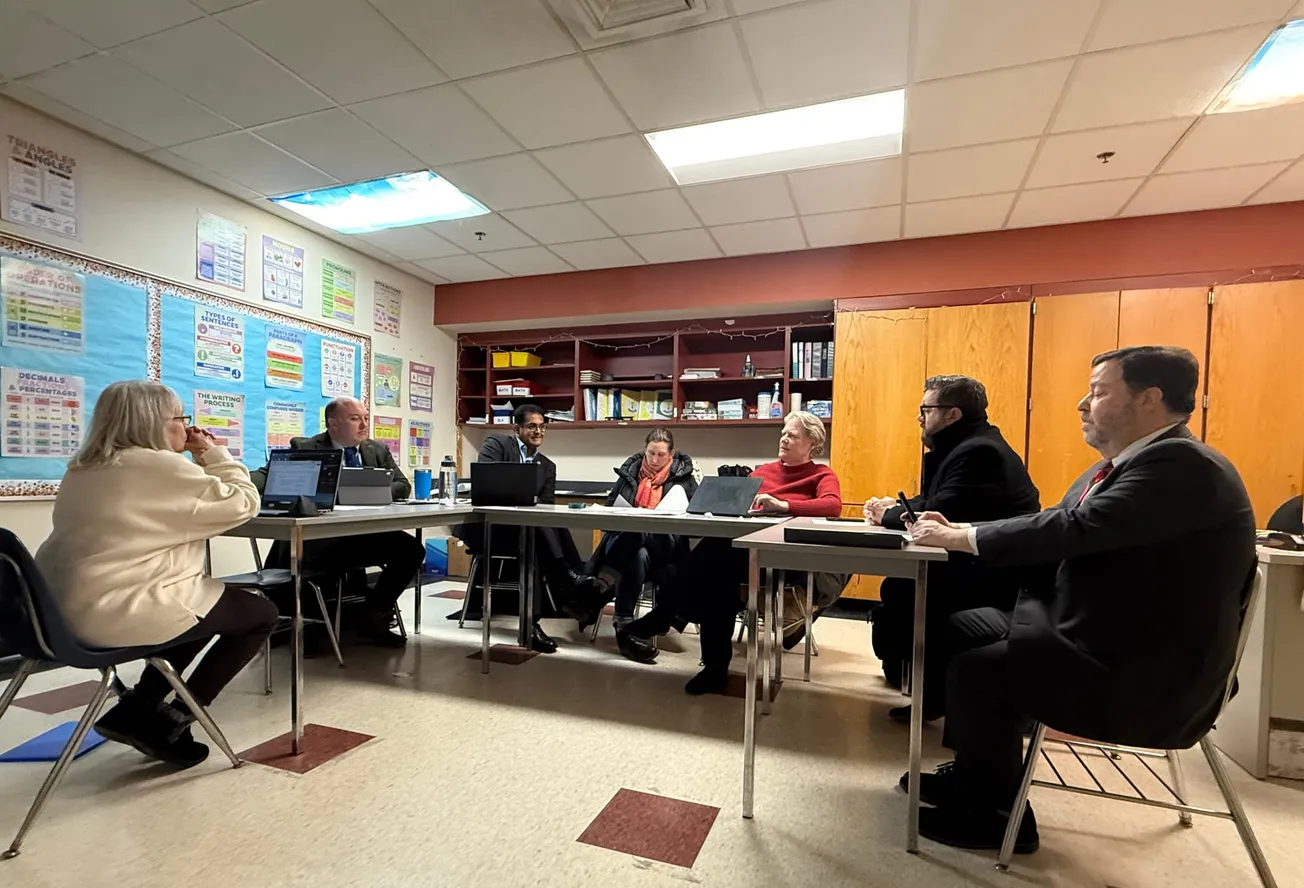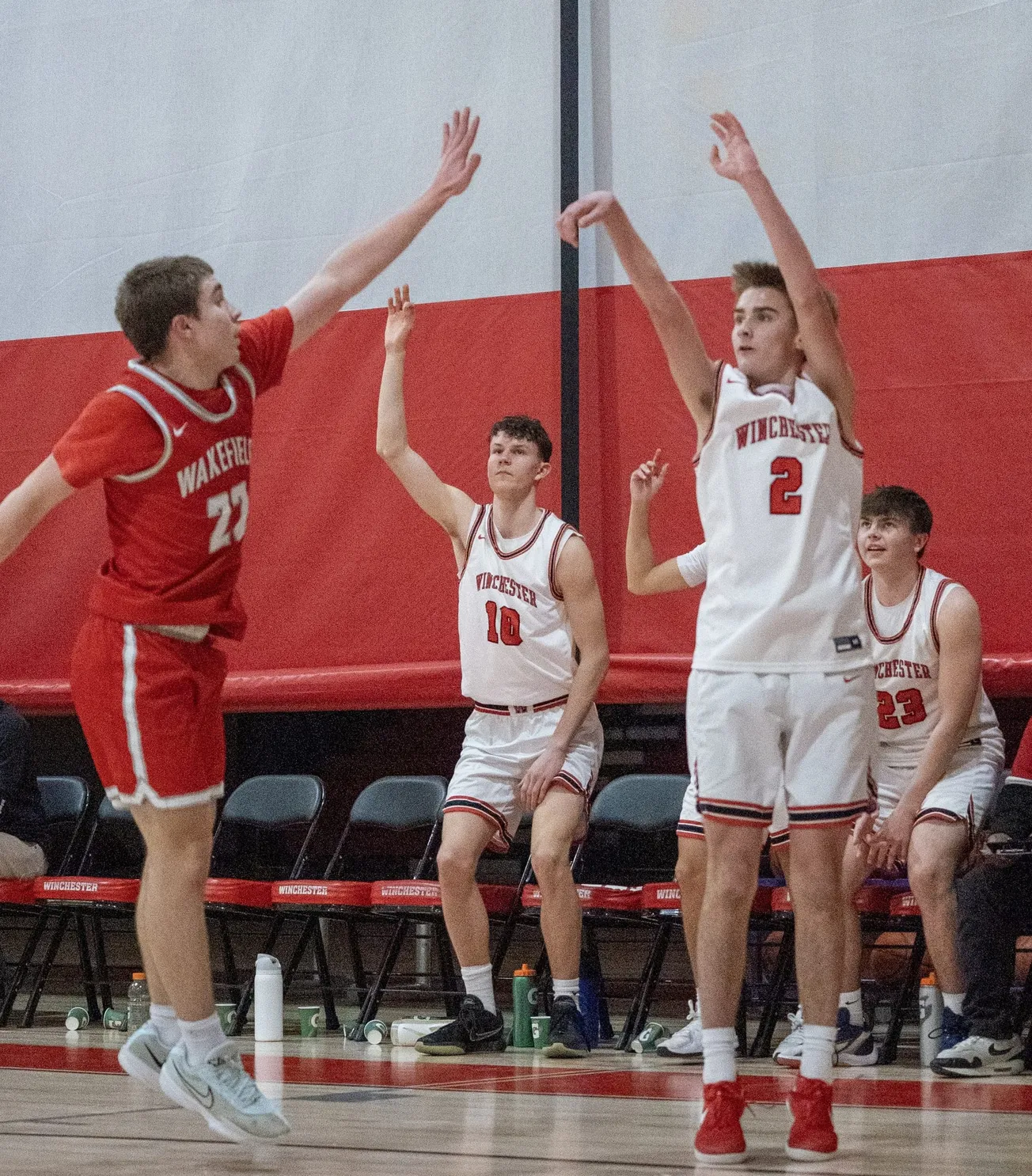Table of Contents
Despite inclement weather, Winchester residents and families packed the Winchester Unitarian Society to celebrate Indigenous Peoples Day.
The fourth annual event put on by the Network for Social Justice was originally planned for Wright-Locke Farm, but was changed due to the forecast.
“It’s great so many people are here,” said NSJ Executive Director Rebecca Slisz. “We often have this many people, but we’re usually at Wright-Locke. It’s just lovely that so many people came out.”
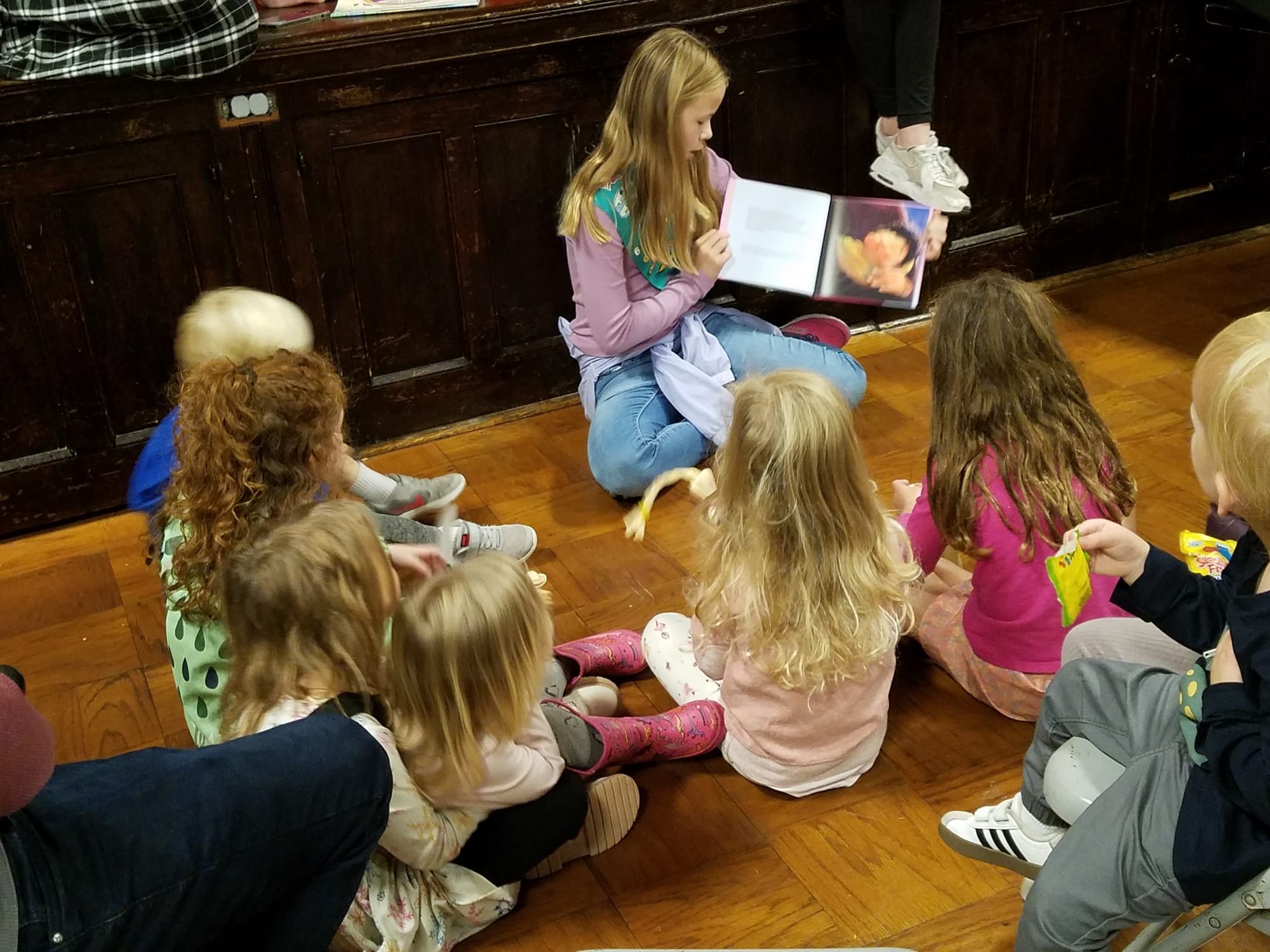
Families crowded around craft tables inside Metcalf Hall to make corn husk dolls as well as traditional hand games while Girl Scouts read to younger children. Also in attendance were advocacy organizations and nonprofits, such as Lakota Youthstay, and the Winchester Public Library and Book Ends.
This year’s Winchester event featured the Wampanoag Nation Singers and Dancers, which Slisz said was a first. The interactive presentation by the group brought children and adults into traditional dances and music, to the delight of audience members.
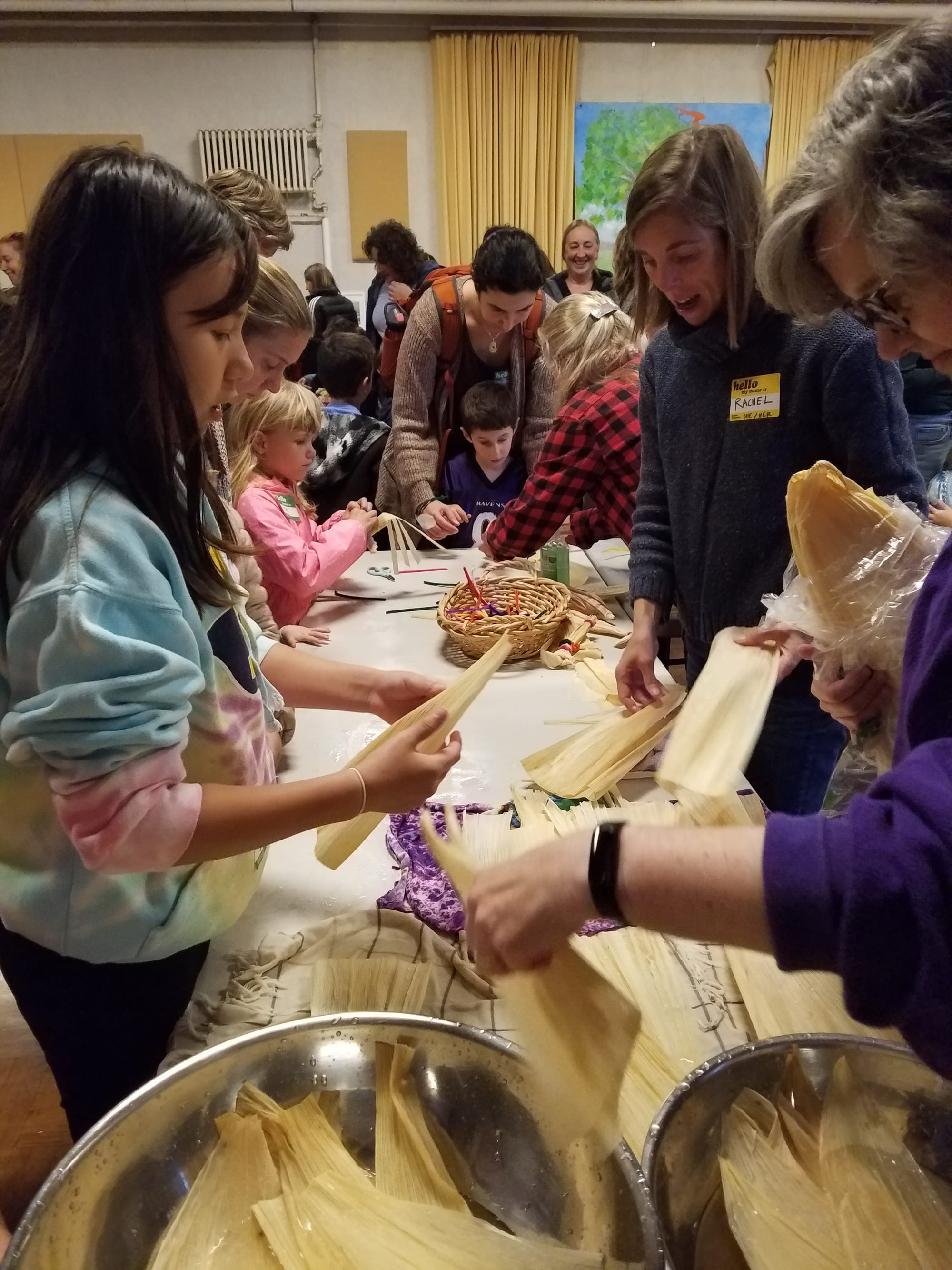
Having started in 2020, Winchester’s celebration is just one of many celebrated across Massachusetts by communities. According to the Pew Research Center, Massachusetts is one of only 16 remaining states to still observe the second Monday in October officially as Columbus Day.
Although officially recognized as Columbus Day across many parts of the country, 34 states and territories, as well as the District of Columbia, now recognize Indigenous Peoples Day as an official holiday, Alabama, Alaska, Hawaii, Idaho, Iowa, Louisiana, Maine, Michigan, Minnesota, New Mexico, North Carolina, Oklahoma, Oregon, South Dakota, Vermont, Virginia and Wisconsin.
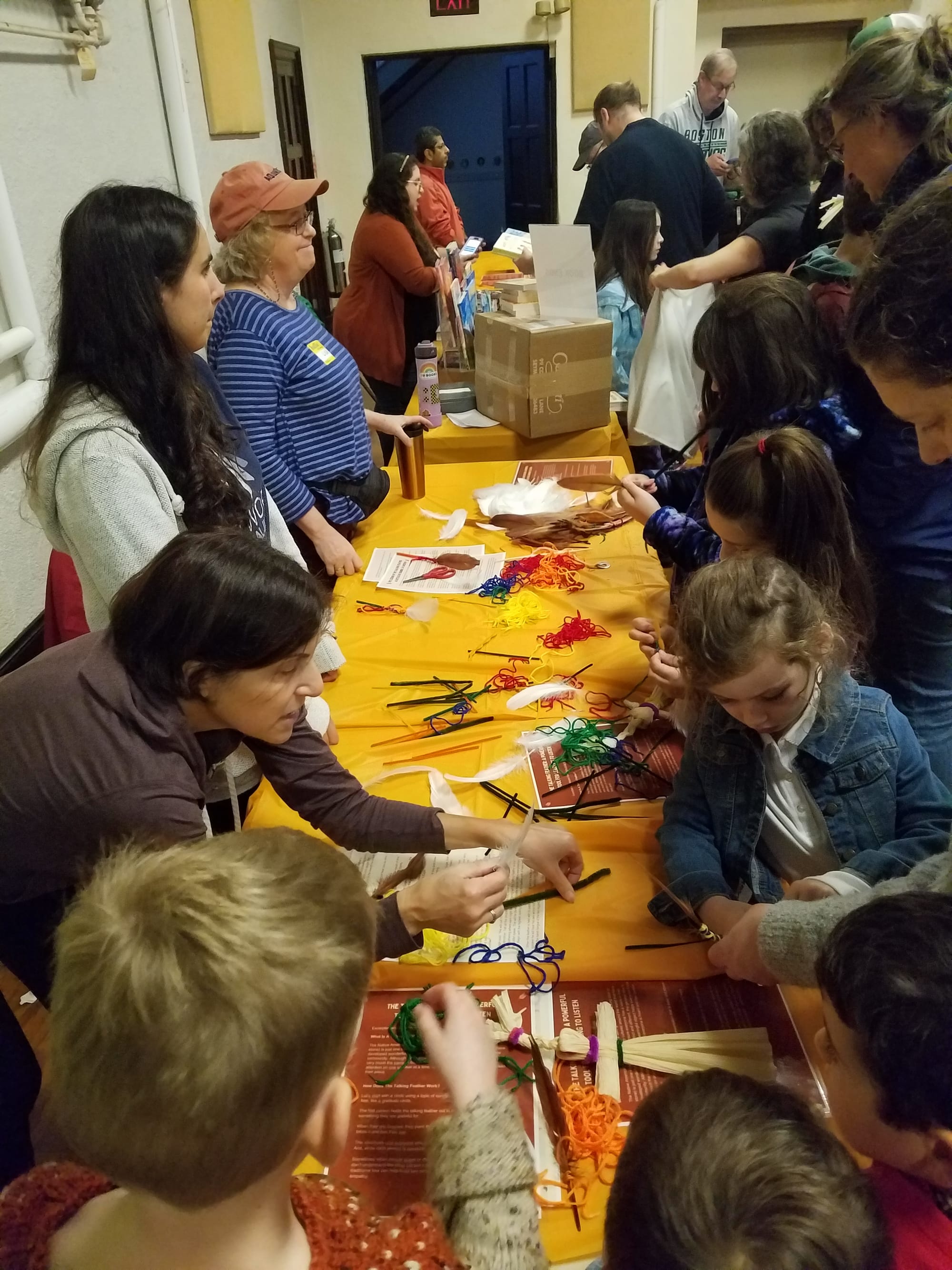
South Dakota, which currently has the third largest Native American population in the U.S., became the first state in the country to officially recognize Native Americans’ Day, which is commonly referred to as Indigenous Peoples Day in other parts of the U.S.
Slisz said there’s certainly been a shift to recognize Native Americans on the second Monday of October, normally associated with Columbus Day.
“Certainly, some people and organizations are,” she said. “Massachusetts is in the minority of states that don’t officially recognize Indigenous Peoples Day, but more and more states either have replaced Columbus Day or acknowledge both.”
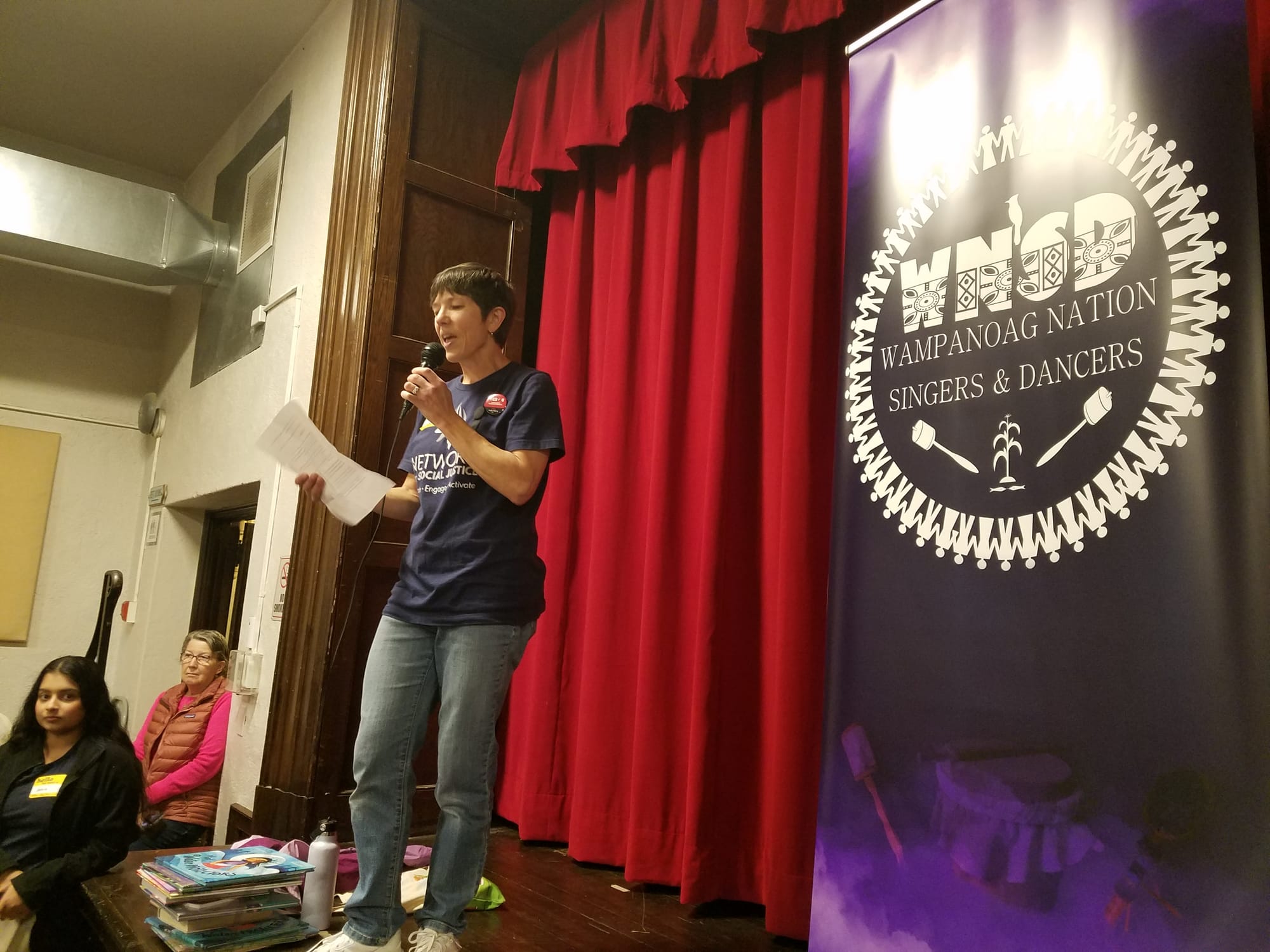
In 2021, President Joe Biden formally commemorated Indigenous Peoples Day on the second Monday in October with a presidential proclamation, becoming the first U.S. president to do so.
Massachusetts legislation
Massachusetts legislators have put forward bills to make changes to how the state’s Native American population are perceived and treated.
Sen. Jo Comerford has, for the fourth time, filed a bill to ban Native American mascots at public schools.
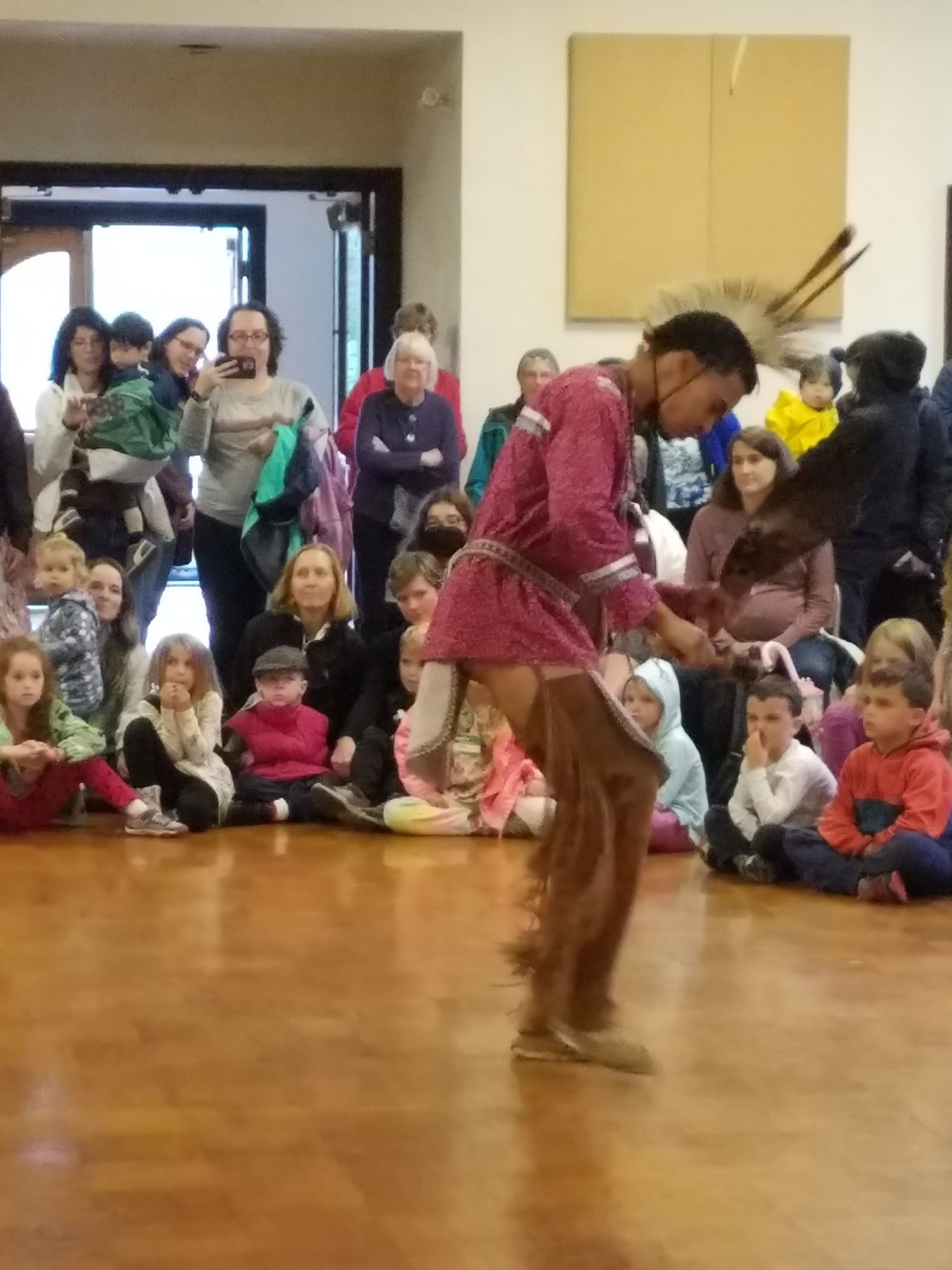
“The Committee on Education favorably reported the legislation from committee this session, with no changes to the language, which is a strong indication of support,” Comerford said in a written statement.
Winchester in July 2020 replaced its Native American mascot, the Sachems, with the Black and Red name as well as a new logo. The vote by the School Committee was unanimous.
Additional bills making their way through the Legislature are H.529, submitted by Rep. Jack Patrick Lewis, of Framingham, to teach Native American history and culture in Massachusetts schools and H.536 by Rep. Samantha Montaño, of Boston, to the create a permanent commission relative to the education of American Indian and Alaska Native residents.
Both bills are currently with the Joint Committee on Education.
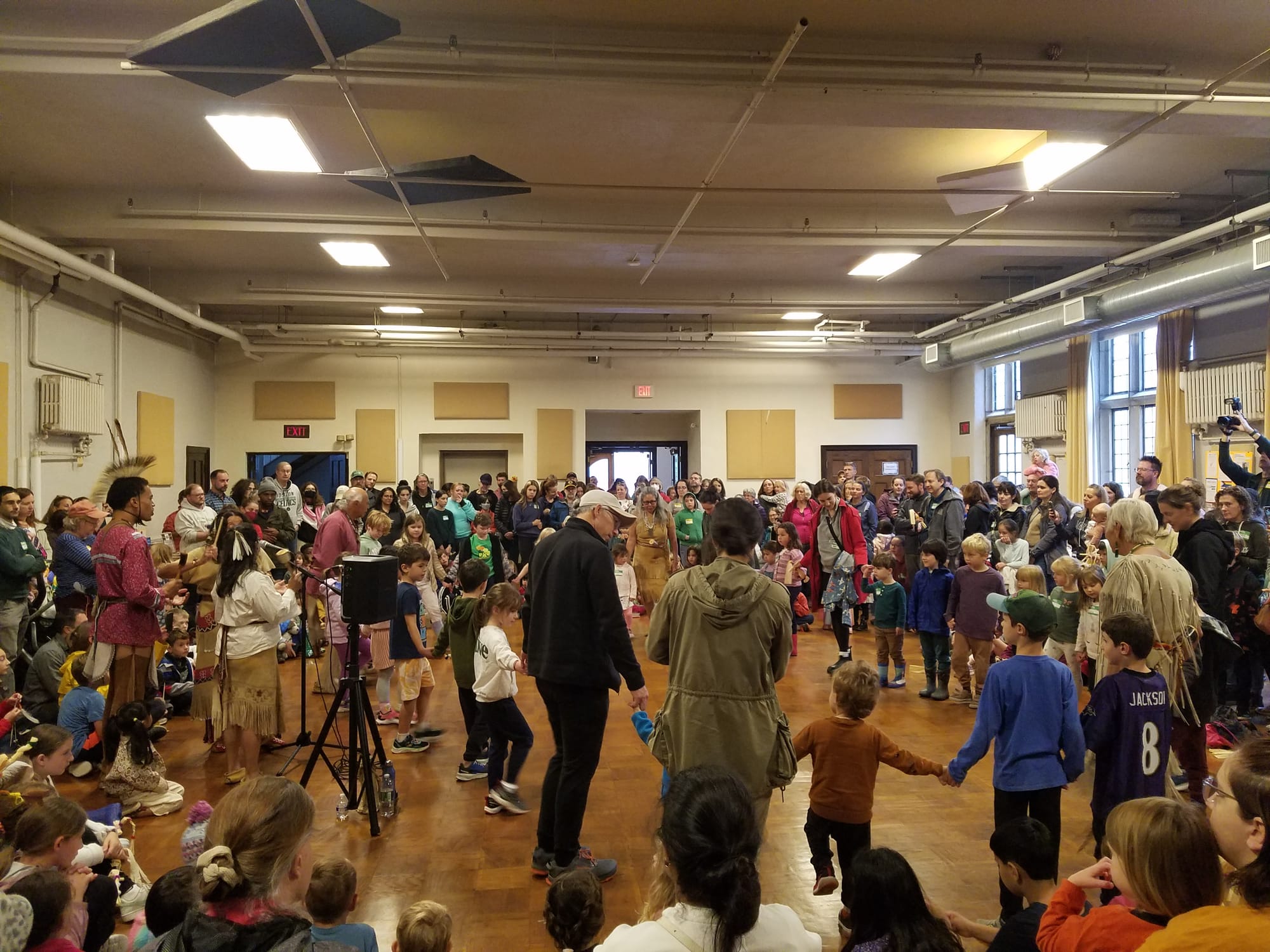
Comerford and Rep. Christine Barber have also filed bills to establish Indigenous Peoples Day to replace Columbus Day in the Massachusetts General Laws. And there is also a bill to protect Native American heritage.
Earlier this year, Comerford teamed with Sen. Jason Lewis to put forth an amendment to complete the work of the Special Commission on the Official Seal and Motto of the Commonwealth.
“As you may remember, while the Special Commission issued a thorough final report and recommended changing the flag, seal, and motto of the Commonwealth, it did not choose a final design,” Comerford said in an additional statement. “Sen. Lewis and my amendment to the budget allocated $100,000 to the Office of Travel and Tourism to establish an advisory commission including the Commission on Indian Affairs, the Massachusetts Historical Commission, the Massachusetts Cultural Council, MassHumanities, the Secretary of the Commonwealth, the Secretary of Education, the Office on Disability, and others to recommend a new design for the flag and seal, as well as a new motto.
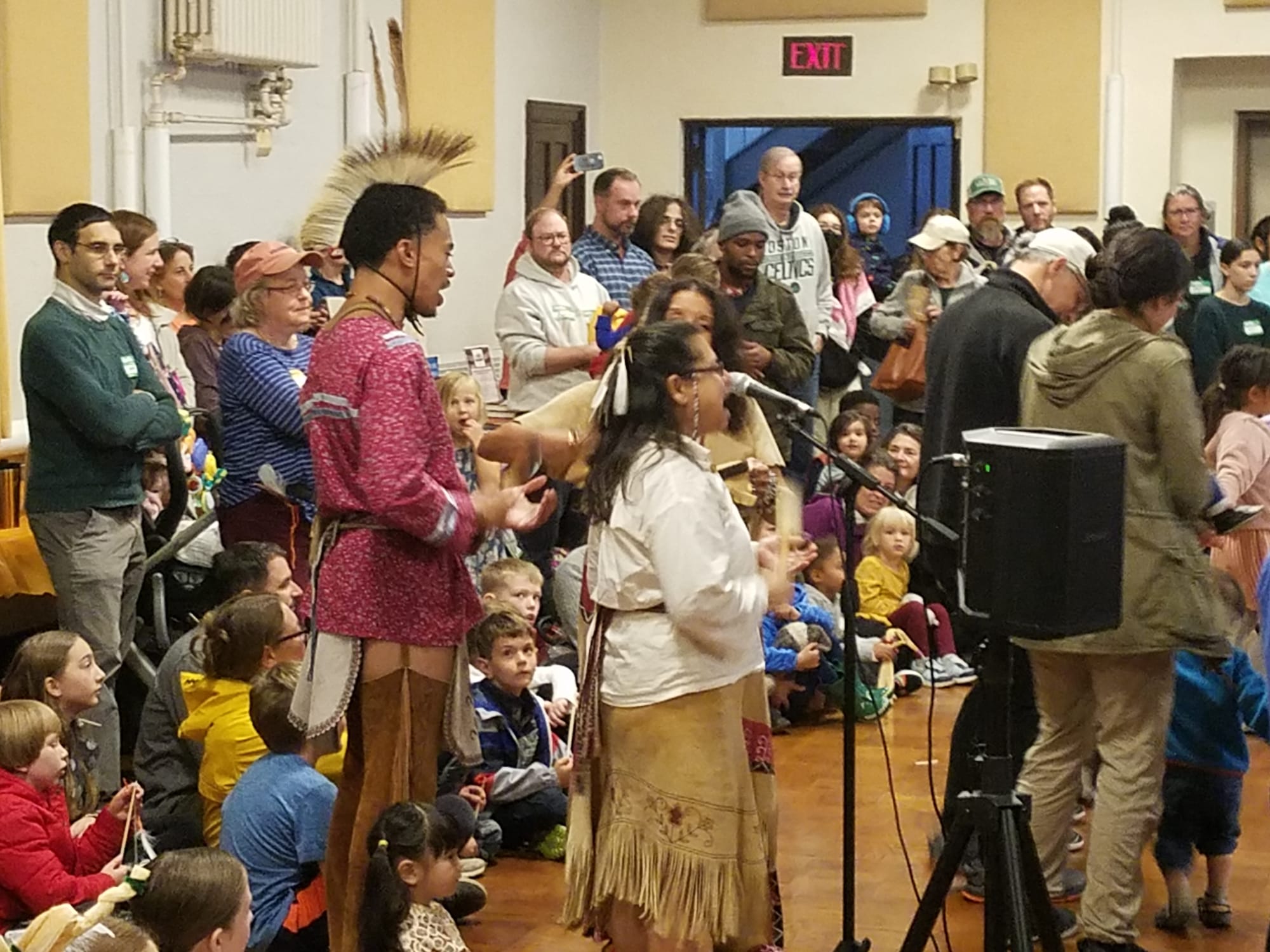
“The advisory commission will work with a designer to create and propose three new designs, and then public input will be taken on those designs before a final design is selected,” Comerford added. “Sen. Lewis and I have also met with the governor’s office and relevant secretariats to urge this work forward. I will remain engaged until we have a new flag, seal, and motto that better represents the values of our Commonwealth.”

